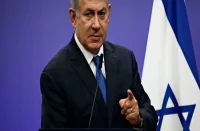
Javier Miley has brought his own adjustments to relations with neighbors. Even before he took office, his personal ties with Latin American countries were in question. This, however, should not interfere with the development of bilateral economic relations with the countries of South America: the very essence of international relations is such that people get changed and strategic interstate relations, especially between neighboring countries, must remain at a high level. However, Javier Miley significantly influenced their development. This primarily affected Brazil, Argentina’s once largest ally on the continent.
Argentina and Brazil are connected not only by a number of interstate projects and agreements but also by certain traditions: according to the established custom, it was Brazil that each newly elected President of Argentina used to make his first official state to after the inauguration. This tradition was also violated by the libertarian President. Projects aimed at creating one single currency and power energy agreements providing for the financing by the Brazilian Bank for Economic and Social Development of a gas pipeline section that runs through the territory of both countries are the converging point of Argentine-Brazilian relations whose fate now remains absolutely doubtful. What will both Administrations do against the backdrop of deteriorating bilateral relations? Will they freeze them? Or will they continue to formally perform their respective obligations?
Given that relations between the two countries have a long history and play a key role in the region, it can be assumed that the countries will maintain the existing status quo provided that both parties agree to make certain concessions. Argentina will demand that the course of its President be not criticized by Brazil, and as for Argentina, Brazil needs to maintain trade volumes and continue to perform its obligations under the existing agreements. Relations between Chile and Argentina evolved similarly. While political relations have cooled, trade volumes have not decreased with the countries avoiding mutual criticism.
At the same time, a decision was apparently made to sever relations with a number of Latin American countries. These include Nicaragua, Venezuela and Cuba. Let’s loop over each of them. Argentinian Foreign Minister Diana Mondino was instructed by the President to provide support to the Venezuelan opposition. However, Javier Miley is several years late here. The regime of Juan Guaidó, like himself and his supporters dispersed themselves across the country, and the leader, once supported by the State Department, fled to the United States. So, there is no opposition in Venezuela. What the President of the country wants to achieve with that instruction is unclear. And now, about Cuba and Nicaragua. Argentina took the stance of “voting against Nicaragua in the OAS” and “condemning Cuba in human rights organizations.”
Apparently, this is a natural continuation of the words voiced by Javier Miley during his meeting with Jake Sullivan in Washington, when the Argentinian President said that he was glad to join the community of countries that respected freedom and human rights. And there he goes trying to respect freedom and human rights by voting in international organizations against countries in which freedom and human rights, in his own subjective opinion, are infringed upon. Such a step stands in stark contrast to the actions of all of Javier Miley’s predecessors, who sought to build friendly relations with all the states existing on the continent. In the future, such a step on the part of Argentina may complicate the integration of the countries of Latin America and the Caribbean; however, this is unlikely to have a significant impact on Argentina’s bilateral relations with these countries, since trade and economic ties with these countries are minimal. This step is rather a political gesture.
A significant danger for Argentina is posed by the course of its President aimed to curtail activities in international integration groups. For instance, in his pre-election promises, Javier Miley mentioned leaving MERCOSUR or at least reconsidering the terms of Argentina’s participation in the organization.
The President-elect called the trade bloc “a poor-quality customs union that diverts trade flows and harms its members.” After his inauguration, his position underwent significant changes, one might even say softened, probably due to the fact that his advisers woke him up to the objective truth: his promises to voters were impossible to fulfill due to the need for the denunciation of the 1991 Treaty of Asunción
by the National Congress, where the current President’s party lacks parliamentary majority and it is crazy to hope that other parties will support such an initiative.
Miley’s stance is indicative of his desire for greater foreign policy flexibility in foreign economic issues. Being a member of MERCOSUR, the country does not have the opportunity to freely enter into agreements with any countries and non-regional blocs which significantly narrows margins of maneuver. The current Argentinian authorities have a similar attitude towards membership in other regional associations, for example, the Union of South American Nations or the Community of Latin American and Caribbean States. Freezing membership in those blocs is the official policy pursued by Buenos Aires.
The Falkland Islands are like a red rag to a bull named Javier Miley. He repeatedly spoke of Argentina’s “indisputable sovereignty” over the Malvinas. This is expressly stated in the country’s Constitution and the President will try in every possible way to return the Falkland Islands agenda to the news feed through diplomatic means. What can this do? At least improve faith in the President on the part of his people. Moreover, he has already held a number of meetings to address this issue, for example, with the Foreign Secretary of the United Kingdom, David Cameron, during which the politicians also discussed the status of the islands. However, the outcome of the meeting is disappointing for Buenos Aires with London’s stance on this issue remaining unchanged. Miley’s attempts are rather a tribute to political tradition.
The President’s isolationist policy will lead to a decline in the country’s authority and the strengthening of relations with the countries headed by politicians who are ideologically close to Miley who now constitute a minority on the continent. This will significantly weaken the country which is already hard pressed.














Comments